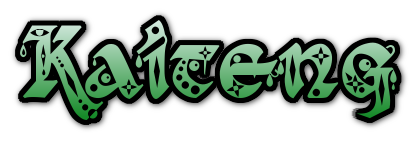Mikael Agricola's God List from the Book of Psalms, 1551
Mikael Agricola (c. 1510 - 1557) was a Finnish bishop and the creator of written Finnish. He studied in Germany under Martin Luther and was a central figure in the reformation of Finland. Because reformation supported the use of local languages in churches (instead of just using Latin like in Catholicism), a written form of Finnish and religious texts translated into Finnish were needed. This is exactly what Agricola set out to do, and he released books such as the Finnish ABC's, Catechism, and the New Testament.
In his book
Dauidin Psalttari (Book of Psalms, 1551), Agricola added a text in the beginning that lists some of the ancient Finnish gods, namely those of Tavastians and Karelians. He also describes some of the pagan traditions and celebrations.
Epeiumalat monet tesse, //
Many false gods are here,
muinen palveltin caucan ia lesse. //
that were worshipped far and near in the ancient times.
Neite cumarsit Hemelaiset //
Tavastians bowed down to them
seke Miehet ette Naiset. //
both men and women.
Tapio Metzest Pydhyxet soi //
Tapio bestowed traps from forest
ia Achti wedhest Caloia toi. //
and Ahti brought fish from the water.
Äinemöinen wirdhet tacoi, //
Väinämöinen was the smith of songs,
Rachkoi Cuun mustaxi iacoi. //
Rahko divided the Moon in black.
Lieckiö Rohot iwret ia puudh //
Liekkiö ruled herbs, roots and trees,
hallitzi ia sencaltaiset mwdh. //
and other such things.
Ilmarinen Rauhan ia ilman tei //
Ilmarinen made peace and air
ia Matkamiehet edheswei. //
and moved travellers forward.
Turisas annoi Woiton Sodhast, //
Turisas brought victory in war,
Cratti murhen piti Tavarast. //
Kratti took care of an object.
Tontu Honen menon hallitzi, //
Tonttu ruled the goings in a room,
quin Piru monda willitzi. //
as well as piru drove many wild.
Capeet mös heilde Cuun söit, //
Kaves also ate the Moon from them.
Calevanpoiat Nijttut ia mwdh löit. //
Sons of Kaleva created meadows and others.
Waan Carialaisten Nämet olit, //
But Karelians had these
Epeiumalat quin he rucolit. //
false gods they prayed to.
Rongoteus Ruista annoi, //
Rongoteus gave rye,
Pellonpecko Ohran casvon soi. //
Pellonpekko bestowed the growing of barley.
Wirancannos Cauran caitzi, //
Virankannos watched over oats,
mutoin oltin Caurast paitzi. //
otherwise people would have no oats.
Egres hernet Pawudh Naurit loi, //
Äkräs created peas, beans, turnips,
Caalit Linat ia Hamput edhestoi. //
brought forth cabbages, (hemps) and hemps. ("Linat ja Hamput", lina/liina is hemp in eastern dialects, hamppu in western.)
Köndös Huchtat ia Pellot teki, //
Köntys made burn-beaten areas and fields,
quin heiden Epeuskons näki. //
when he saw their false belief.
Ia quin Kevekylvö kylvettin, //
And when spring-sowing was sowed,
silloin ukon Malia iootijn. //
then the toast of Ukko was drunk.
Sihen haetin ukon wacka, //
Ukko's vakka was brought there, (
Wikipedia: Vakkajuhlat)
nin ioopui Pica ette Acka. //
and so did maids and wives get drunk.
Sijtte palio Häpie sielle techtin, //
Then many shameful things were done,
quin seke cwltin ette nechtin. //
as well as heard and seen there.
Quin Rauni Ukon Naini härsky, //
When Rauni, wife of Ukko, ??? (did something) OR
When the wife of Rauni-Ukko ??? (did something)
ialosti Wkoi Pohiasti pärsky. //
Ukko splashed nobly from the bottom. (..... yeah we don't know for certain what this means.)
Se sis annoi Ilman ia Wdhen Tulon, //
And that then gave air and rain.
Käkri se liseis Carian casvon. //
Kekri increased the growing of cattle.
Hijsi Metzeleist soi woiton, //
Hiisi bestowed victory over the forest people,
Wedhen Eme wei Calat wercon. //
Vedenemä took fish into a net.
Nyrckes Oravat annoi Metzast, //
Nyyrikki gave squirrels from the forest,
Hittavanin toi Ienexet Pensast. //
Hittavainen brought rabbits from the bush.
Eikö se Cansa wimmattu ole, //
Isn't that people frantic,
ioca neite wsko ia rucoile. //
who believes in and prays to these?
Sihen Piru ia Sundi weti heite, //
That's where the Devil and sin pulled them to,
Ette he cumarsit ia wskoit neite. //
so they bowed to and believed in these.
Coolludhen hautijn Rooka wietin, //
Food was taken to the graves of the dead
ioissa walitin parghutin ia idketin. //
where people whined, cried and weeped.
Menningeiset mös heiden Wffrins sait, //
Menninkäinens also got their sacrifices
coska Lesket hoolit ia nait. //
because widows took care and married. (whats going on)
Palveltin mös palio mwta, //
Many other things were also worshipped,
Kivet Cannot Tädhet ia Cwta. //
rocks, stumps, stars and the Moon.
Now that's obviously a text that's heavily biased in favour of Christianity, and at this point Christianity had been in Finland for centuries. It is still the earliest text we have about Finnish paganism and therefore historically important. While all of the information might not be correct, at lot of it definitely is.
Explanations and comments on my comments
"Turisas brought victory in war" is an interesting sentence. Typically Turisas or Iku-Turso is known as a terrifying sea monster. Calling him a war god makes a connection to the Germanic war god Tyr or Tiwaz. This god was definitely known in Finland (even though Finns are not Germanic) as the Finnish word for the sky is "taivas", which seems to originate from Tiwaz. It's possible that there has been some kind of mix up with Iku-Turso and Tyr, or that it was the Finns who added elements of Tyr to Iku-Turso. Or maybe they have the same origin. Who knows.
Ukon vakka (Ukko's vakka) was a celebration in honour of the Finnish thunder god Ukko. For more info, see the Wikipedia link.
So what's up with Ukko and his wife? No one knows for sure but theories are a plenty. One possibility is that it is depicting a fertility rite between the two gods, that Ukko's wife was a fertility goddess and the two having sexual intercourse causes thunderstorms. However, the Latin translation of the text simply states that both gods caused lightning, rain and wind. This would make Ukko's wife a thunder goddess. The Latin translation was made by Sigfridus Aronus Forsius (c. 1560 - 1624) after Agricola had already died. Or maybe it's something completely different. We don't know.
The confusion about the menninkäinens and widows is my own. I have no idea what that sentence is supposed to mean. Instead of taking care and marrying it might also say taking care and fucking but I'm not sure if that's a bit too direct for a Christian bishop. :D Did widows figurtively marry these menninkäinens by sacrificing to them or are these sentences even connected? Or am I just misunderstanding the whole thing? I am confusion.
As for worshipping rocks and stumps, ancient Finns had these sacred rocks, trees and groves where they sacrificed/offered to gods and spirits.
<< back to translations

